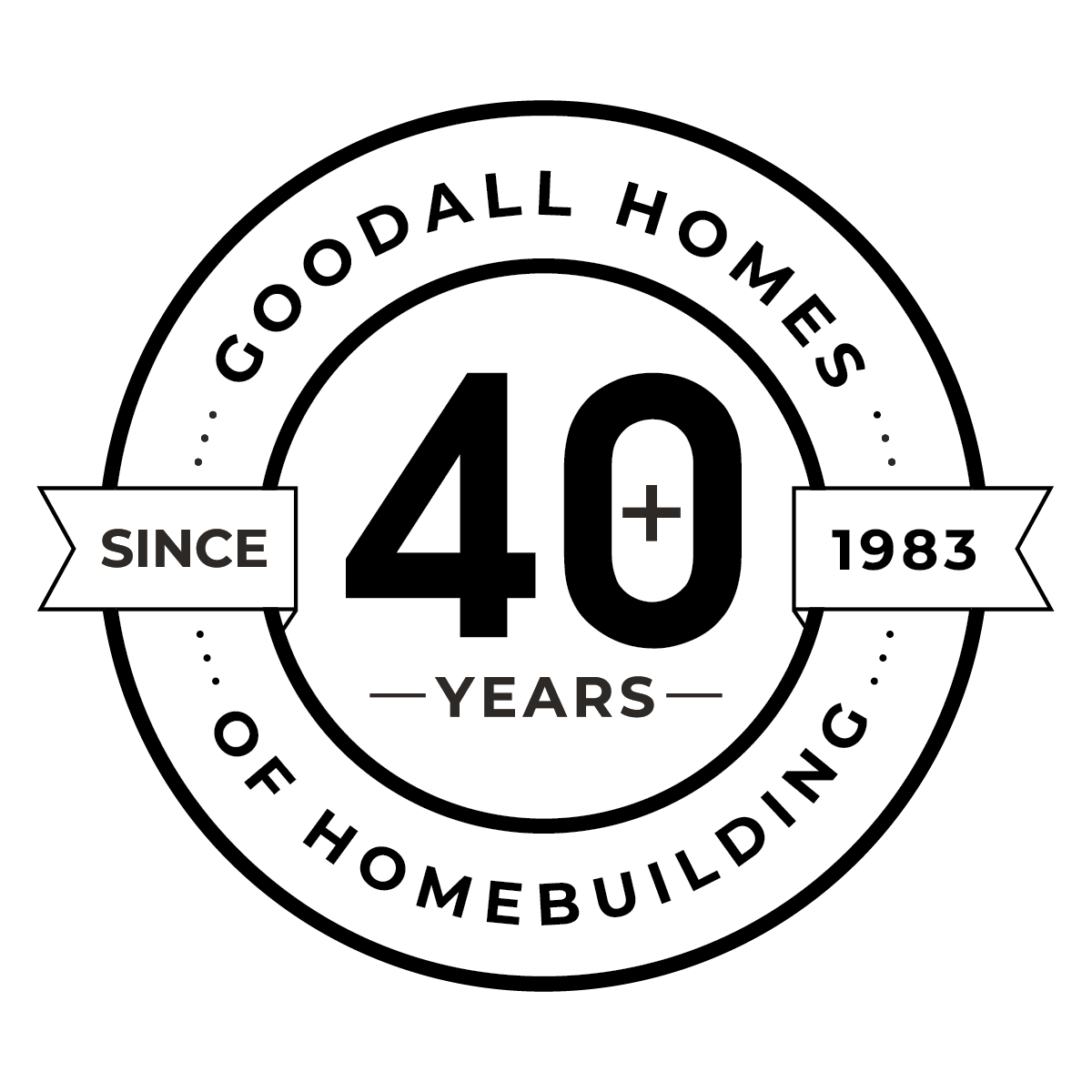The Tennessean Reports: "Home Building Begins to Rise in Parts of Middle Tennessee"
The Goodall Homes Story Menu
January 6, 2012
The Tennessean Reports: "Home Building Begins to Rise in Parts of Middle Tennessee"
(This is a great article in today's Tennessean, written by Bobby Allyn.)
Although single-family home construction has dropped dramatically since the economic downturn, fresh momentum is slowly picking up in some corners of Middle Tennessee.
New home building over the past 12 months in a number of Nashville’s suburban counties has improved from 2010, with the best improvement in Williamson County.
According to home tracker Metrostudy, Williamson County’s newly built homes rose 15 percent year-over-year as prices in some parts became relatively more affordable.
Sumner County’s large rural stretches quenched the thirst of homebuyers who prefer bigger lots, propping up new home construction there by 7 percent. Realtors said low property tax rates underpinned a 2 percent year-over-year boost in homes being built in Wilson County.
In an industry that hails any positive news as cause for celebration, local real estate experts welcomed the patchy surge in new home building, while admitting that the current numbers are far from the levels enjoyed amid peak times before the recession some six years ago.
“It reflects the availability of land, it reflects the price of land and how much harder it is to build in-fill homes,” said Jay Lowenthal, broker with Zeitlin Realtors. “More homes are coming out of the ground now because people are starting to understand the deals that are in front of them.”
But not all the data were vibrant.
Despite new home growth in areas of Davidson County’s southern and eastern edges, in locales like Bellevue and Hermitage, home building in the county overall declined 21 percent year over year. In addition, building permits reportedly dropped 20 percent in Rutherford County.
Recovery is gradual, uneven
Real estate experts say that Middle Tennessee’s new home construction is beginning a gradual recovery, faster than the nation’s rebound in home starts. In fact, the U.S. Commerce Department reported earlier this week that November’s single-family home construction rose 1.5 percent, coming just as the average rate for a 30-year-fixed rate mortgage loan fell to 3.91 percent, a historic low. Richard Bell, president of Turnberry Homes, built 98 homes in Williamson County last year, double the previous year’s rate. He said homebuyers are eschewing large garages in exchange for “better utilized space,” which translates into lower heating and more modest electric bills at a time when consumers are increasingly cost-conscious. Furthermore, areas with ample land on the outskirts of Nashville will spring back faster than communities within the city’s core, Bell said, because they generally have lower unemployment rates, thus they’re arguably better positioned for recovery. For instance, Williamson’s unemployment rate in November was 5.6 percent, compared with Nashville-Mursfreesboro’s 7.2 percent. “It’s still a far cry from what we did in 2005,” Bell added. “But we’re starting to approach (new home) numbers we saw in 2001, 2002 — more conventional numbers.”Lower prices lure some to move
The home construction uptick in Sumner County was likely triggered by homebuyers looking for an acre or more of land at bargain prices, said Matt Ward, agent with the Deselms Team Realty Group, which sells homes in Sumner and elsewhere in Middle Tennessee. Perceived bargains and other factors are driving home building patterns and county-to-county moves by some residents. “New properties that used to be out of the affordability reach in Williamson County have started to reposition in areas that are more affordable,” said MetroStudy’s Jason Brown. “We’re seeing more people move from Rutherford to Williamson for the quality of schools, and now the price point.” Nonetheless, an uncertain job market and conservative lending standards that prevent some would-be buyers from securing loans remain high hurdles. “What holds true is that in bad times, great locations remain desirable places to live,” Bell said. “Yet financing is still tight.” Real estate observers said though all parts of Middle Tennessee continue to plod through distressed properties, Davidson seems to be the laggard in flushing them. “The resell market is glutted with foreclosures and short sells,” said Tamara Senibaldi, a broker with Marquis, adding that many communities in greater Nashville continue to struggle with distressed properties more than some other neighborhoods on the periphery. Jimmy Deatrick, vice president of Crye-Leike, said Wilson County’s subdivisions have been climbing in popularity as a result of homebuyers capitalizing on that county’s low property taxes. “People have been flooding out of Davidson and Williamson to Wilson for years, but now they’re looking at the bottom line. Building and living here is cheaper than in the other counties.” Most of the 98 houses that Goodall Homes built last year in Sumner County hovered around the $190,000 price point, according to Chief Operating Officer Keith Porterfield. When the first-time buyer tax credit was still in place, the bulk of Goodall homes were lower priced and speculative, matching the demand, Porterfield said. Now, the majority of Goodall’s new homes are presold and mid-priced.Permits half of peak
Still, the number of single-family home permits issued last year was roughly half the 2007 figure, according to county real estate records. But some areas like Bellevue, Hermitage and Antioch appear to have emerged from the broad housing slump stronger than most others. Take the Spencer Hill community off Haywood Lane in Antioch, for instance. There, a cluster of new homes in the $130,000 to $150,000 price range is expanding. Around Hays Blackman Loop, a road recently built to accommodate the new addresses, nine new homes have been built in the past year, with many more under construction, helping fuel the 142 new home permits issued last year in Antioch. Realtors say the area combines the best of both worlds: decent homes with smaller price tags. “We’re seeing first-time buyer neighborhoods come together,” Senibaldi said. “Apartment dwellers who want to move into a home but stay in the area. You get a lot for your money in Antioch.” Not all single-family home permits reflect a buyer’s new residence, though, warns Bill Hostettler of HND Realty. In some ZIP codes like Antioch, where Hostettler is an investor, permits are taken out for town homes, which eventually will be rental property. “We’re pulling a lot of permits now, but we’re renting everything,” he said. “And people are standing in line to rent them.” But the economics of MiddleTennessee’s housing market — rock-bottom prices and strikingly low interest rates — strongly favors buying, broker Lowenthal counters. More consumers are beginning to take notice. “People are realizing they can pay the same amount for a mortgage payment (as) rent,” Lowenthal said, “sometimes even cheaper.” (Written by Bobby Allyn of the Tennessean.)Latest Posts
October 9, 2025
Home Features You’ll Love—Already Included!
May 1, 2024
Should I Buy a New or Used Home?
February 12, 2024
Rate Drop Protection with Silverton Mortgage
November 10, 2023
Why Pay 100% interest! Ready to get off the rental 🎢 ride?
May 5, 2023
Giving Back and Building Dreams with Habitat for Humanity
March 23, 2023
Spring has sprung! Now’s the Time to Spruce Up Your Home
The Latest
From The Goodall Homes Blog


If You Have Questions, Our Team has the Answers!
Call Today 615-989-6223
Get Started Today
Contact Us








